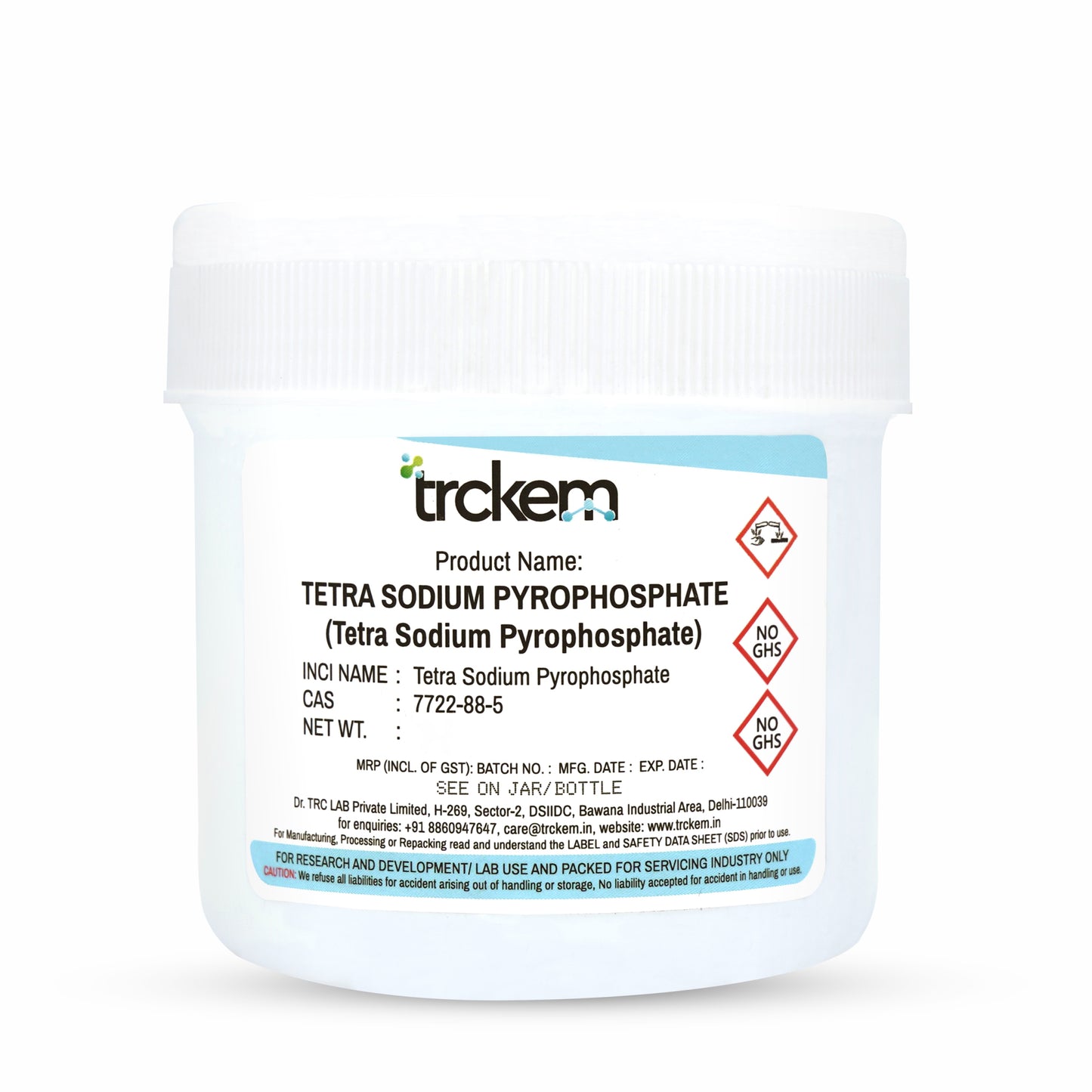
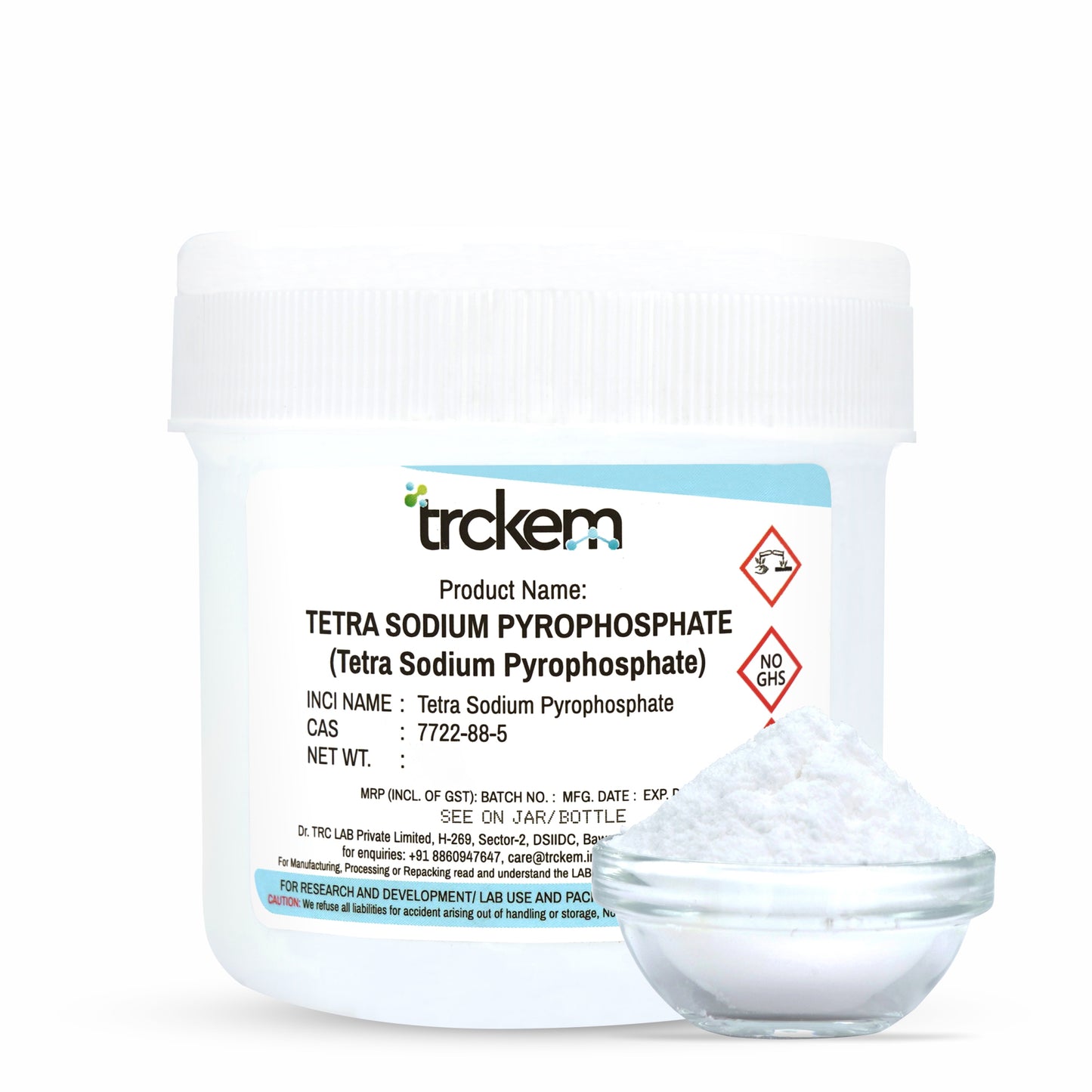
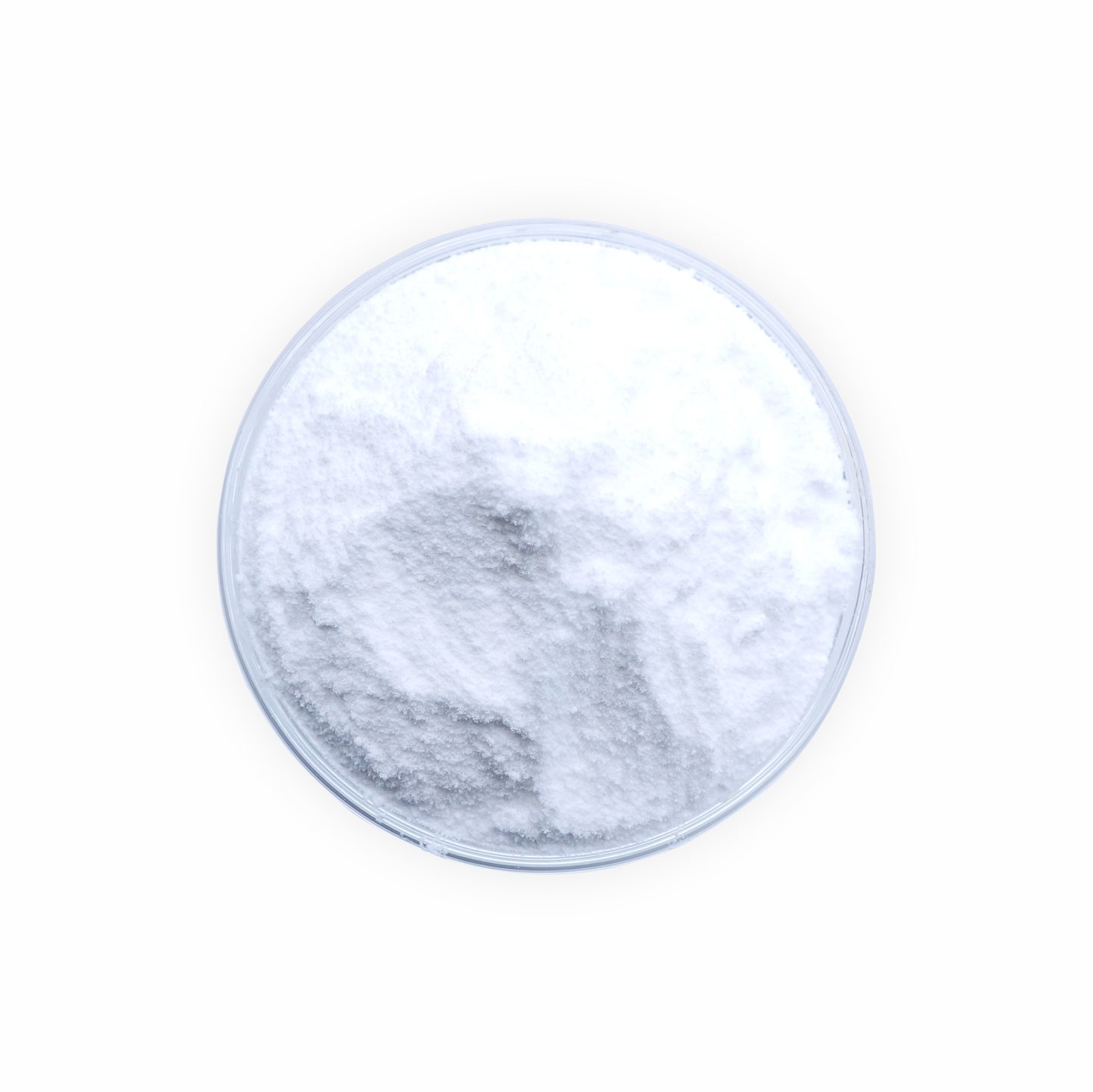
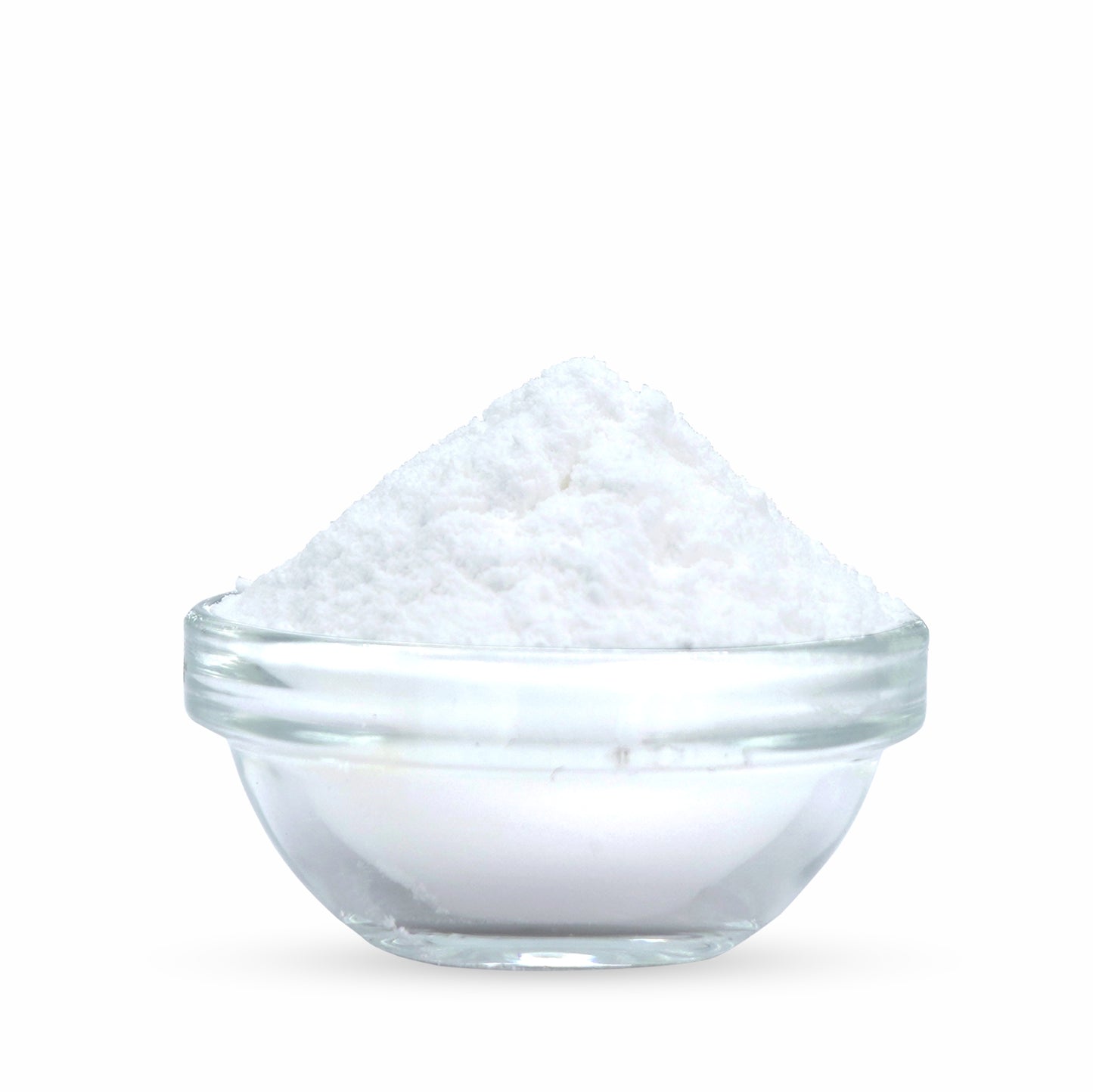
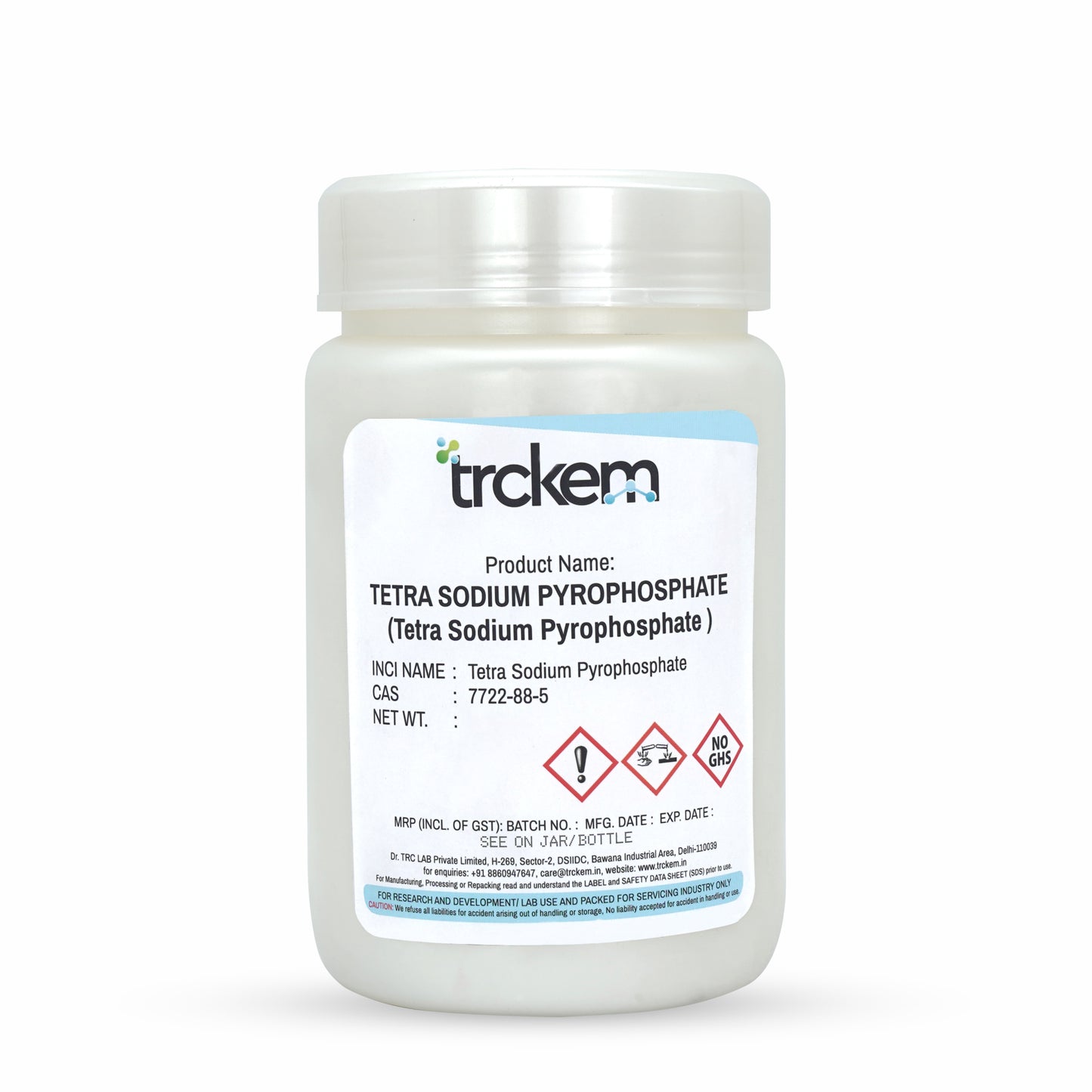
Formulator’s Queries, We Answered
1. What is Tetrasodium Pyrophosphate?
Tetrasodium Pyrophosphate (TSPP) is an inorganic compound with the chemical formula Na₄P₂O₇. It appears as a white, water-soluble solid and is commonly used in various industries, including personal care, due to its versatile properties.
2. What is the INCI name of Tetrasodium Pyrophosphate?
The International Nomenclature of Cosmetic Ingredients (INCI) name for Tetrasodium Pyrophosphate is "Tetrasodium Pyrophosphate."
3. What is the CAS number of Tetrasodium Pyrophosphate?
The Chemical Abstracts Service (CAS) number for Tetrasodium Pyrophosphate is 7722-88-5.
4. In which personal care products is Tetrasodium Pyrophosphate commonly used?
Tetrasodium Pyrophosphate is commonly used in:
Toothpastes: Serves as a tartar control agent by binding calcium and magnesium ions, preventing their deposition on teeth.
WIKIPEDIA
Shampoos and Conditioners: Functions as a buffering agent, maintaining the pH balance of the product.
INCI BEAUTY
Facial Cleansers: Acts as a chelating agent, binding metal ions that could affect the stability and appearance of the product.
INCI BEAUTY
Body Washes and Soaps: Used as an emulsifier, aiding in the mixing of oil and water components.
5. Is Tetrasodium Pyrophosphate safe for use in personal care products?
etrasodium Pyrophosphate is generally considered safe for use in personal care products when formulated appropriately. It is used as a buffering agent, emulsifier, and chelating agent in various cosmetic formulations.
6. Are there any known side effects or concerns associated with Tetrasodium Pyrophosphate?
While Tetrasodium Pyrophosphate is widely used in personal care products, it is important to use it within recommended concentrations to avoid potential skin irritation. Formulations should be carefully balanced to ensure safety and efficacy.
7. How does Tetrasodium Pyrophosphate compare to other chelating agents in cosmetics?
Tetrasodium Pyrophosphate is a versatile chelating agent, commonly used in cosmetic formulations. Its effectiveness and safety profile make it a preferred choice in many personal care products.
8. Can Tetrasodium Pyrophosphate be used in formulations for sensitive skin?
Yes, Tetrasodium Pyrophosphate can be used in formulations for sensitive skin when used within recommended concentrations. It is important to ensure that the final product is balanced to maintain skin safety and efficacy.
9. Is Tetrasodium Pyrophosphate biodegradable?
Yes, Tetrasodium Pyrophosphate is biodegradable. However, its environmental impact depends on the concentration and the presence of other ingredients in the formulation. Proper disposal and formulation practices are essential to minimize environmental effects.







